From the Scrap Drawer: The Dawn Patrol
Negatives and snap shots from thrift stores, collages, photographs, and Italo Calvino.
From the Scrap Drawer is a monthly 'quilt' assembled from fragments—disparate thoughts, quotations, inspirations, photographs, works in progress, and bits of life. It is a space for gentle awareness of the interconnectedness of all things, people, and places.
The cosmic and the intimate are always in conversation, but digital life obscures this truth. While existence is fragmented, I am learning to weave those fragments into something whole.
I named my newsletter The Patchwork Principle, purely because it on an instinctive level. It also reminded me of Janet Jackson’s song The Pleasure Principle. The opening line “You might think I’m crazy , but I’m serious” is a sentiment the seems to permeate my body of work—playful, yet deeply serious.
I wasn’t aware that this was already a named in a dissertation on metaphysics written in 2013, but my creative philosophy aligned with it’s ideas surprisingly well.
I am not an expert on metaphysics, but the thesis is generally that the world is made up of loose and separate pieces—nothing is necessarily connected, but anything can be patched together.
I see this as a helpful way of viewing the world, because we are constantly fed images, framed by a set of ideas, which lead us to believe that the image and words are inseparably linked. The Patchwork Principle reminds us that what we think is fixed is actually loose and separate. It creates a method to rip the seams of our paradigm and construct meaning simply by rearranging the pieces.
This is aligned with the creative process I’ve developed for myself. For me, meaning emerges from adjacency, and the tension between the microcosmic and macrocosmic.
I’m creating this new space within my newsletter to test these concepts, and allowing the fragments I’ve collected throughout each month to speak for themselves without forcing a cohesive narrative.
Here are some fragments from January 2025—loose and separate.
This month I bought a bag of photo negatives at an thrift store. One of the first frames I scanned was of a girl sitting in front of a dollhouse and a Christmas tree with tinsel hanging from it’s branches. Another frame centers two toy horses on a sepia lawn with laundry hanging from a line in the background. I scan, edit, and archive them in files on my google drive, with no real purpose other than salvaging a lost memory.
Other frames on the roll show the family at horse stables or playing polo, suggesting a more affluent position in society than my family’s.
Recalling the single photo my mom has of herself from childhood, I wonder—What privileges come with having a well documented and maintained visual history of one’s own life?
I suppose it might come with a more grounded sense of self, and a knowing that you were important enough in the world to watch yourself grow up. Even so, photos from those fortunate enough to own a camera and have a consistent place to store negatives eventually end up in bins at thrift stores.
Along with negatives, I collect random snapshots and ephemera for collage. The process is slower than you might expect. I spend months sifting through materials, tearing out images that draw me in. Over time, with patience, they somehow snap into place in a single image that answers the questions that weigh on my mind.
I keep a “compost bin” for my creative fragments hidden underneath my bed. Bits of practice accumulate, waiting for the right moment.
This collage is a slow meditation on rest and information overload. It lingers on the question: Is knowledge accumulated through careful study, or does it arrive in dreams? Why not both?
I’ve become obsessive about taking photographs of my apartment. I signed my fourth lease here this month. In the years before I moved through subleases every 6 months to a year. The photos help me reflect on the home as a mirror of the self. I see how my collection of books and art supplies are reflected in my own self understanding, and ability to make meaning of life through learning and creativity.
I feel some discomfort in sharing them. I feel discomfort with my own comfort when writing about homelessness from such a place. But also, beneath my own comfort, there is a subtle but enduring knowing of my own precarity. There is a persistent feeling of encroachment when I see developers posted up around my neighborhood.
I wish I had more to give, but all I have to offer are words.
I photograph my home in it’s cycles of tidiness and untidiness. I know that this is evidence of a life lived. I try to see housework as a part of my creative work. It is, after all, apart of the world I am building.
I try to feed myself well, knowing this will result in another sink full of dishes. I repeat this Zen story to myself as I wash my bowls and hope it will one day stick:
A monk told Joshu, “I have just entered the monastery. Please teach me.”
Joshu asked, “Have you eaten your rice porridge?
The monk replied, “I have eaten.”
Joshu said, “Then you had better wash your bowl.”
At that moment the monk was enlightened.
I’ve also been taking a lot of photos of windows. I love the way outer worlds merge with inner worlds in the reflections on the glass. I develop the photos, scan them in and decide which elements to amplify and push back in Lightroom.
This lecture from Italo Calvino has been an immense comfort for me. Calvino has become a ghostly mentor in my writing practice, teaching me to remove weight from my stories, taking wisdom from ancient mythologies.
In a lecture on lightness, he reflects on how Perseus is the only one who could slay Medusa because of his lightness, and his refusal to look her in the eye:
Perseus supports himself on the very lightest of things, the winds and the clouds, and fixes his gaze upon what can be revealed only by indirect vision: an image caught in a mirror.
I go out into the world and avoid Medusa’s gaze. Medusa is not a woman with snakes for hair, but an amorphous entity that takes the shape of corporations, lobbyists, and institutions that manipulate and control, twisting reality with their influence.
Instead of looking directly, I search for images caught in mirrors. I speak of the unspeakable by miniaturizing it. I revel in the mundane things I’m told are boring. I try to maintain a sense of lightness when all else tells me to be heavy.
How do we endure these times if we cannot maintain lightness? If we do not see the fragments of existence as loose and separate?
"…for Ovid, too, everything can be transformed into something else, and knowledge of the world means dissolving the solidity of the world,"
You might think I’m crazy, but I’m serious.
It might seem as though this mythic vision of the world has no place in the present. I urge you to test the principle for yourself, before dismissing it.
It’s more simple than it sounds.
Collect. Archive. Rip. Collage. Photograph.
Notice how the meaning of things change as they are placed next to other things. The world and it’s contents are loose and separate. Words and art are needle and thread.



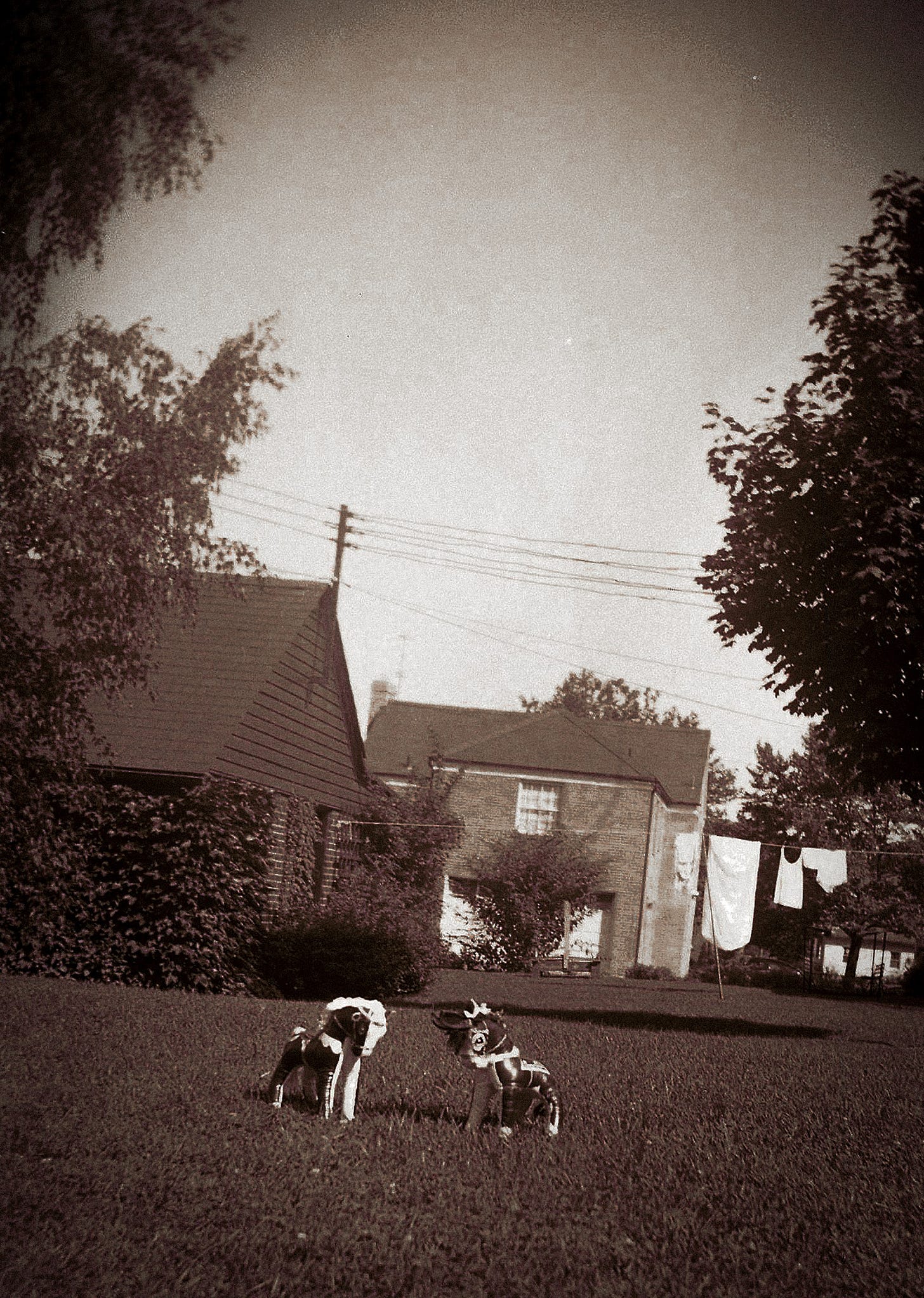
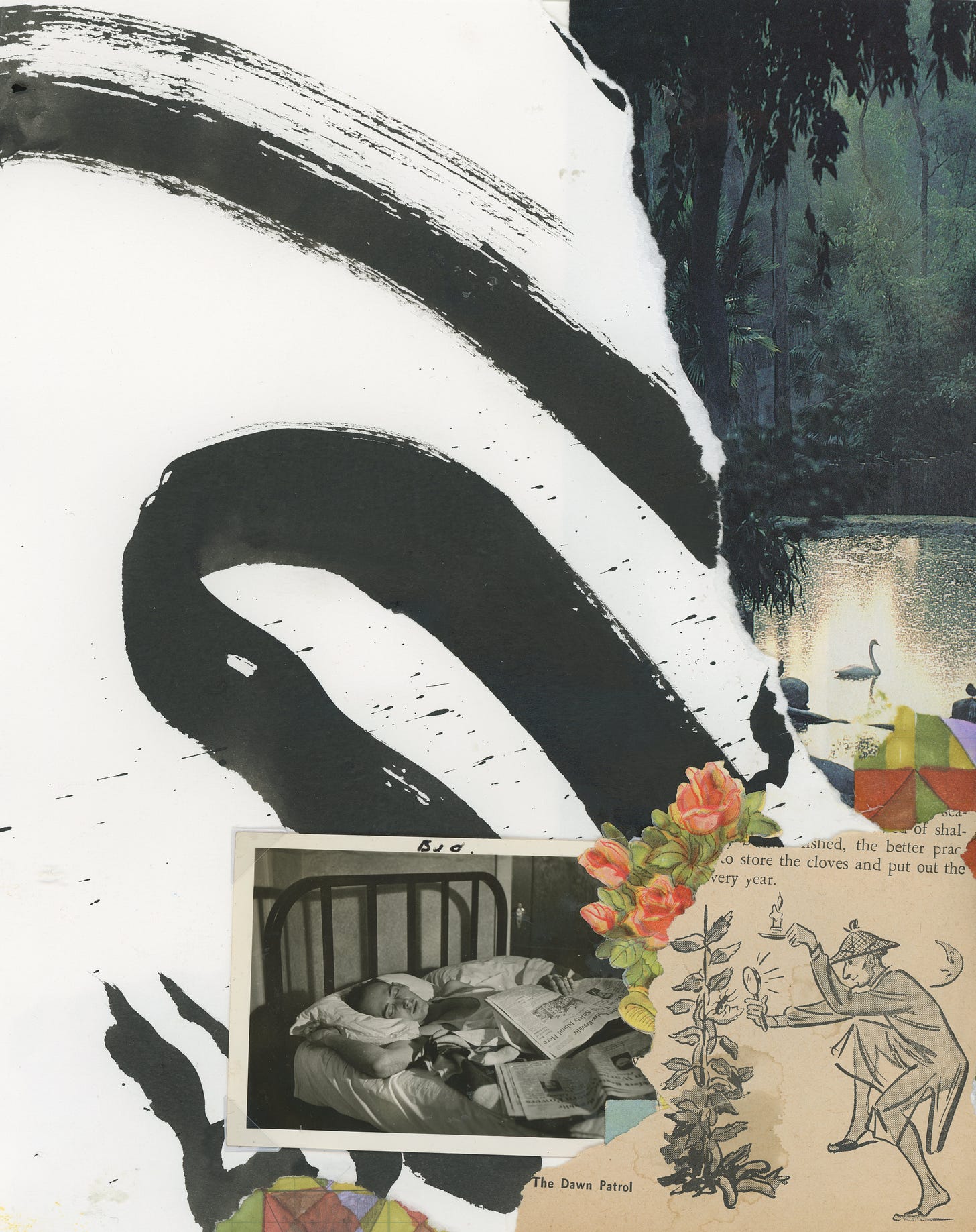
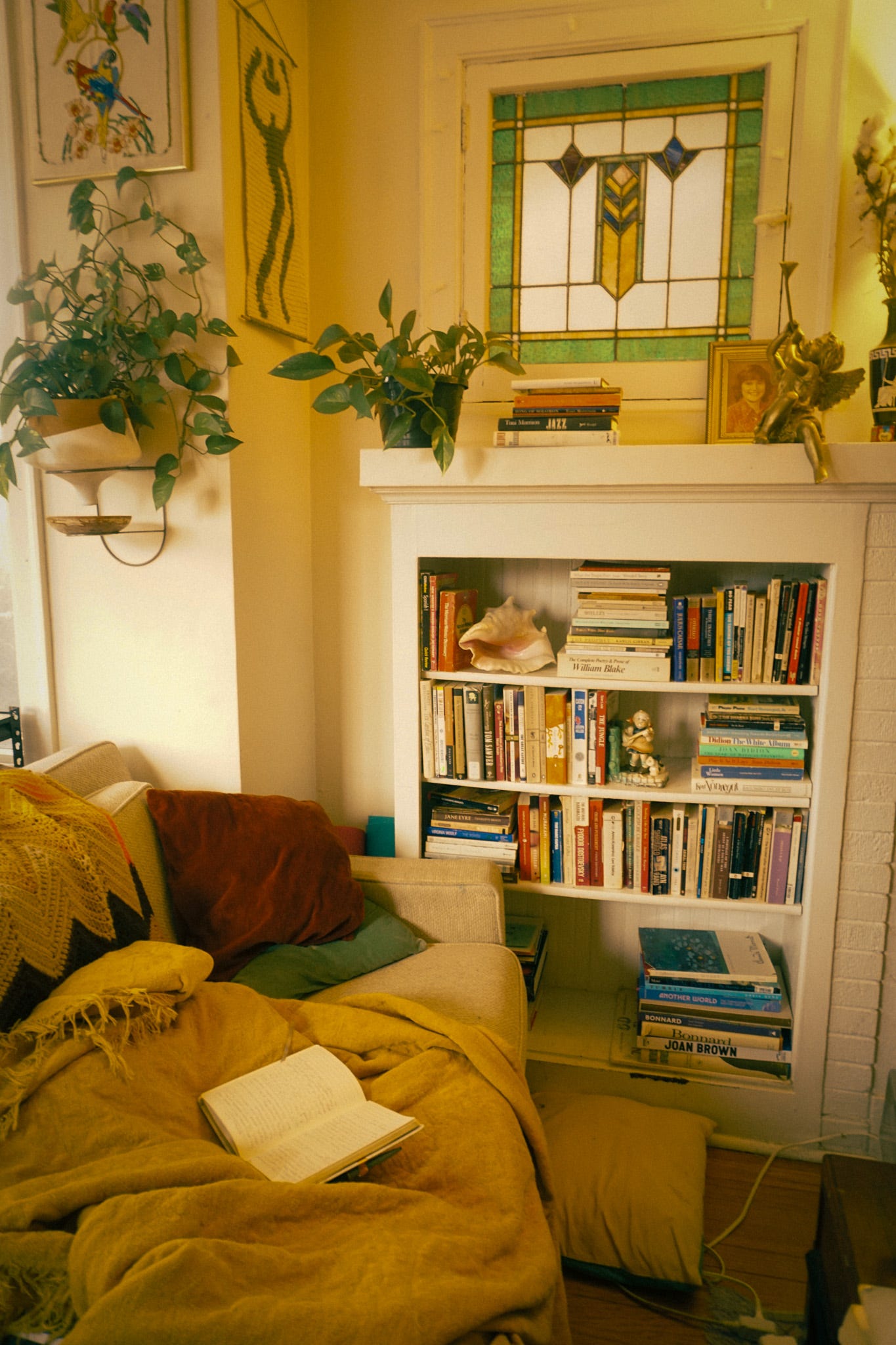
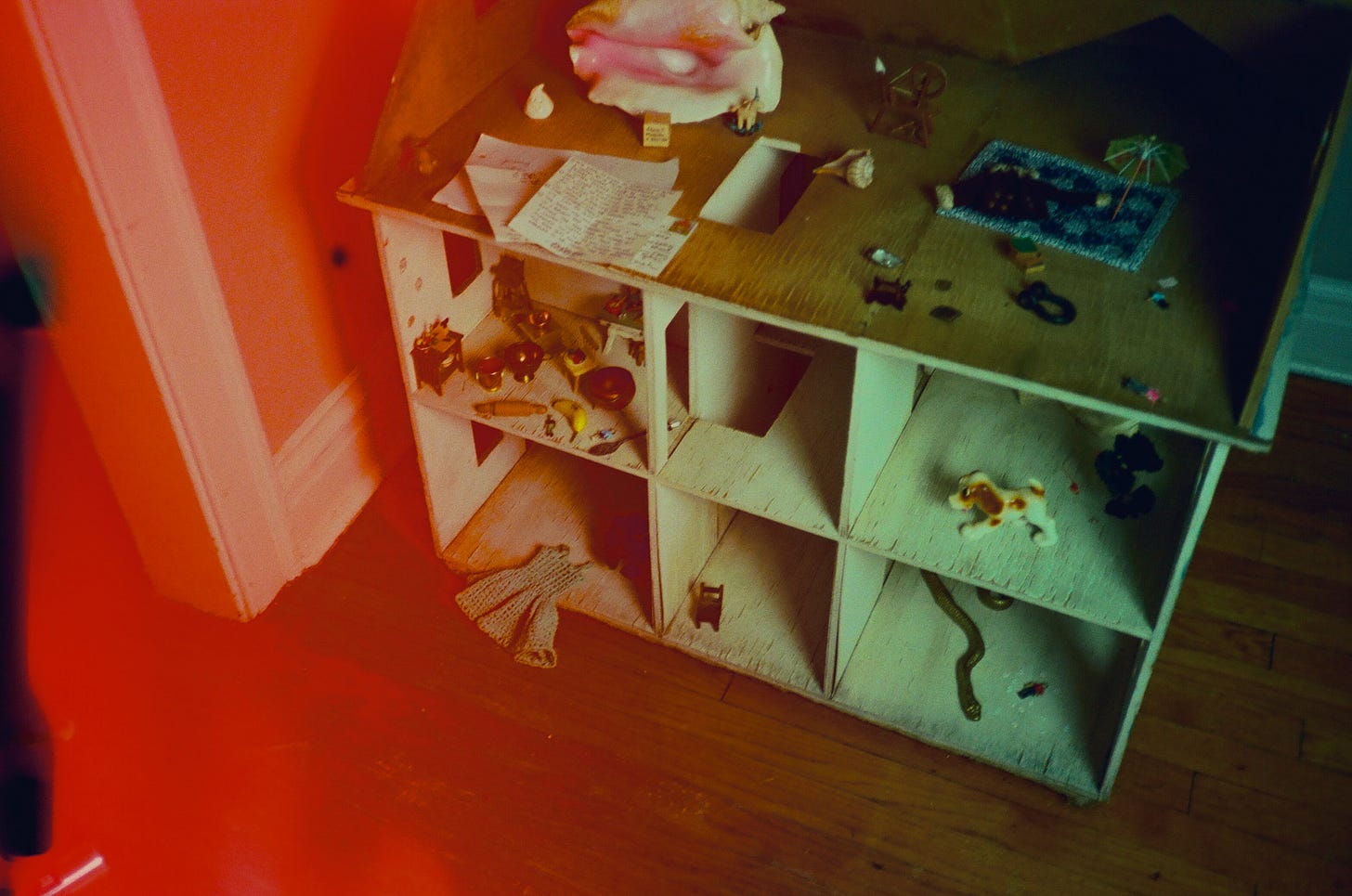
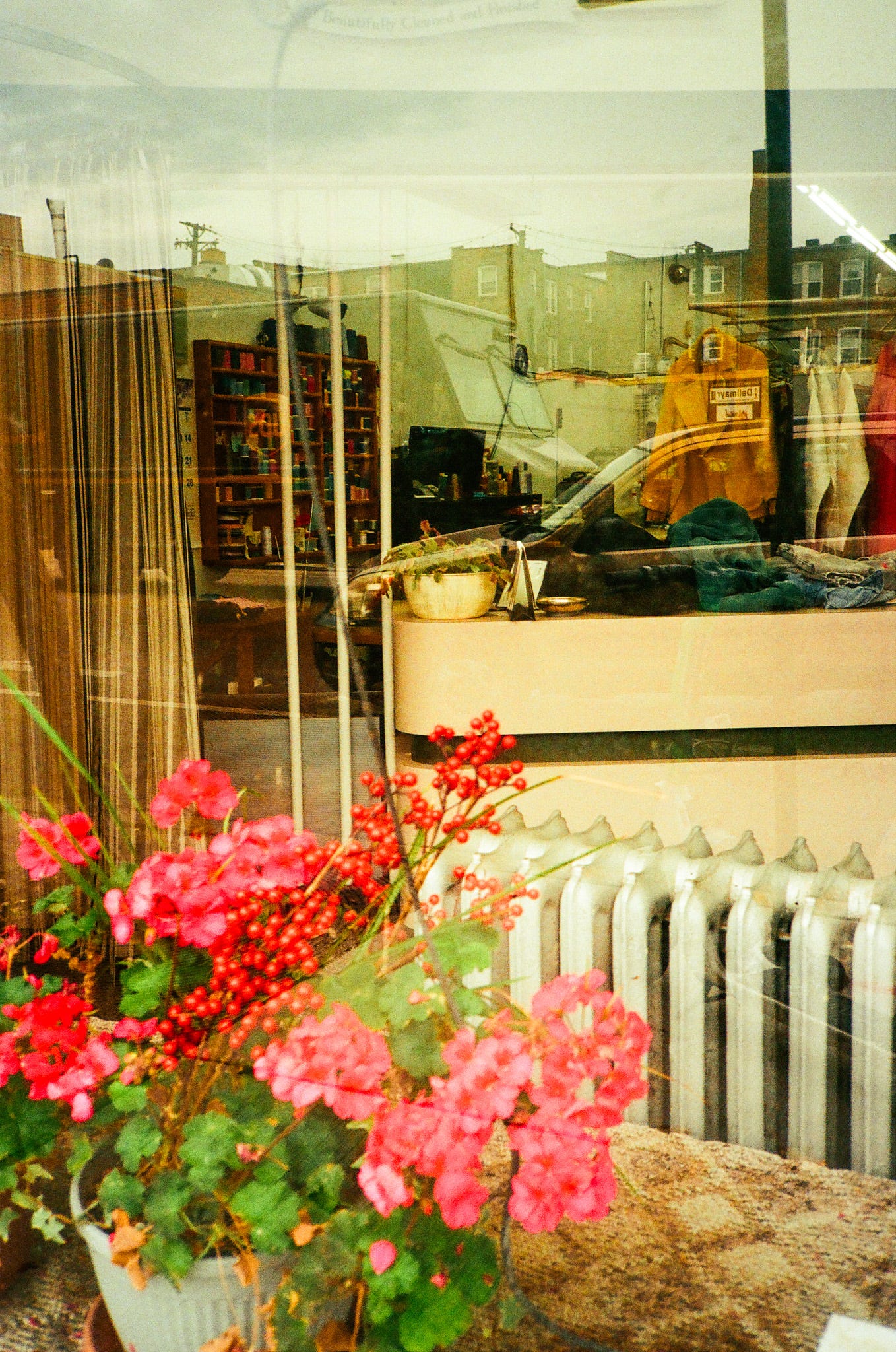
So many astute observations in this post Jeremy. I really appreciate your honesty!